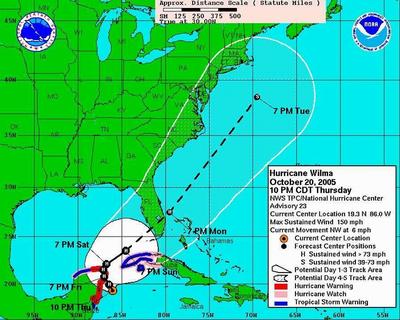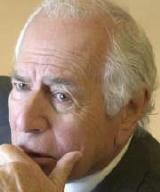Elian is back in Cardenas, the coastal town where he was born. He lives in a modest new house with his father, his stepmother and his two young half-brothers.
He likes being with other people, he told us. It’s important to him. “I don’t like being alone. I always like being around others so I can be calm and not remember what happened,” he says.
The bad memories begin with the night his mother and her boyfriend took him down a path and past mangrove trees to a desolate little beach just outside Cardenas. There, a few hours before dawn on Nov. 22, 1999, they were to board a boat and set off for America.

They were among 14 people packed into a 17-foot homemade boat. The only child on board, Elian thought he was going on an adventure.
“They told me we were going fishing and we were going to see my uncles,” Elian says, “and since I was little I didn’t understand very well what that was — to see my uncles.”
His uncles lived in Miami, about a 30-hour trip in good weather. But after the sun set on their first day at sea, the boat drifted into a storm. Elian says he remembers the moment that the boat turned over. The child was put on top of an inner tube. A few others were clinging to the tube, including his mother, who couldn’t swim.
“I remember it was daytime, and I saw my mother and a friend,” he says. “Then I saw them fighting. No, no I couldn’t do anything. Then I fell asleep and when I opened my eyes, I didn’t see anyone.”

On Thanksgiving morning, three days after Elian left Cuba, Sam Ciancio, a local fisherman, took his cousin on a fishing trip off the coast of Fort Lauderdale. Two miles off shore, they saw an inner tube floating in the water with something on top of it. When they drew closer, they thought it was a hoax. “We seen it looked like a doll was tied to an inner tube. It looked like a doll. It really did,” Ciancio says. “We thought it was a joke.”
Ciancio and his cousin sailed on. But on their return voyage, 30 minutes later, they had another look. “As we approached the inner tube, we seen his hand move,” Ciancio says. “Next thing you know, I’m in the water. He grabbed a hold around my neck like that. And I started screaming — this kid’s alive, he’s alive, he’s alive!”
His mother was not. Her body was never found. But thanks to an inner tube, Elian had survived, drifting 250 miles. Remarkably, he wasn’t in bad shape. After only a day in a hospital, the child was handed over to relatives in Miami.
His great-uncles and a cousin wanted to keep him in Miami. His father wanted him returned to Cuba. So did Fidel Castro.
At the regime’s call, hundreds of thousands demonstrated in Havana, chanting Elian Gonzalez’ name. In Miami, anti-Castro protestors countered by surrounding the house where he and his Miami family lived.
“I thought there was something bad going on, but I couldn’t figure out what was going on,” he says now. “They were not telling me what was happening, why they were shouting.”
Elian told us he hated being cooped up in that small house. He missed his school, his friends and his father.

He says that his Miami relatives were telling him “bad things” about his father, and also “telling me to tell him that I did not want to go back to Cuba.” He said he always told them that he wanted to go back.
Delfin Gonzalez, a great-uncle who cared for Elian in Miami, says he won’t believe anything Elian says in Cuba because he is a prisoner there. Delfin also denies that Elian was unhappy in Miami.
But when we asked Elian about the best part of his stay there, he said there was no best part.
So, we asked him what the worst thing was about the time he spent in Miami. “The nights,” he replied.
He says he was having nightmares then, and his uncles “would talk to me about my mother, and it was better not to remind me of that because that tormented me, to be remembering all that. I was very little, and it wasn’t good to be talking about that.”
The ordeal dragged on for five months.

Then it ended in a flash in the early morning hours of April 22, 2000, as armed federal agents stormed the house to take the boy away. His relatives had hidden him in a closet. A camera clicked, and a haunting image was beamed around the world, of a terrified child screaming.
“At that moment I felt afraid because I thought they were going to scold me or do something to me,” he says.
Elian was carried out of the house, and whisked away by a special agent. And his world changed again.
“When they said I was going to see my father, at that moment, then I felt joy that I could get out of that house,” he says.
His father, Juan Miguel Gonzalez, was waiting for him in Washington.
“We embraced each other. It was a very emotional moment,” the father says. “They had to help me carry the boy off the plane. I couldn’t even hold him in my arms. It was very overwhelming.”
Elian’s arrival in Cuba seemed to have been designed for a conquering hero, albeit one who was missing his two front teeth. Little Elian embarked on a two-month tour of Cuba, all recorded by Castro’s personal cameraman Roberto Chile, who helped us on our story too.
Then, aside from a festive seventh birthday party at his school, Elian was kept out of the public eye in Cuba until this past April. On the fifth anniversary of the raid in Miami, Elian gave a patriotic speech in front of the cameras and in the presence of Castro.
Che Guevara was yesterday, Elian Gonzalez is today. And that’s precisely how Cuba is playing him. In what’s called the Museum of Ideas in Cardenas, he has already been cast in bronze as the revolutionary hero preparing to throw Superman — in Cuba a symbol of imperialism — onto the rubbish pile of history.
Ramon Sanchez, a leader of the demonstrations in Miami five years ago, today says, in effect, “I told you so.”

“He is being brainwashed by the Cuban regime. When you see a child talking in the same exact way that the dictator has talked for 46 years, you know he has been indoctrinated,” Sanchez says.
In Miami, the house where he lived with his relatives has been turned into another kind of museum. Here, Elian is portrayed not as a revolutionary but as a religious icon.
His clothes are in the closet. His stuffed animals are on the bed. The spot where he was taken by marshals is marked with a cross. There’s been no attempt to disguise who he is meant to resemble.
Delfin Gonzalez looks after the museum. He still insists Elian did not want to go back to Cuba.
We asked Elian if he ever wants to see his relatives in Miami again. He says he does. “Despite everything they did — the way they did it was wrong — they are my family; they are my uncles."
People say, half jokingly, that Elian may have a future in Cuban politics. His father is now a member of Cuba’s National Assembly.
Elian was elected president of his student body last year. Not a bad start. He admits he would like to be a member of the National Assembly, like his dad.
Elian knows that his destiny has been a strange one, and that he will spend the rest of his life trying to figure it out.
With all this, it's easy to forget that the boy who was the centerpiece in a historic tug of war is at heart an 11-year-old kid. So, of course, we had to ask him if he has a girlfriend. He says he does, but he won’t tell us her name. It's a secret.
 Depois do que se passou na Comissão Nacional do Partido Socialista, a mobilização deste fim de semana em vários plenários distritais torna evidente que o que está em causa para alguns dirigentes não é derrotar Cavaco Silva, mas sim combater Manuel Alegre. De facto, não se ouviu uma palavra do Secretário Geral do PS a criticar a apresentação da candidatura do ex-primeiro ministro e a sua total ausência de propostas para a saída da crise nacional. Pelo contrário, parece que o principal objectivo é condicionar os militantes socialistas que apoiam Manuel Alegre. O que é uma perversão inadmissível da natureza da eleição presidencial e uma forma de limitar a liberdade de escolha de cidadãos eleitores que, pelo facto de militarem num partido político, não podem ver-se privados dos seus direitos constitucionais.
Depois do que se passou na Comissão Nacional do Partido Socialista, a mobilização deste fim de semana em vários plenários distritais torna evidente que o que está em causa para alguns dirigentes não é derrotar Cavaco Silva, mas sim combater Manuel Alegre. De facto, não se ouviu uma palavra do Secretário Geral do PS a criticar a apresentação da candidatura do ex-primeiro ministro e a sua total ausência de propostas para a saída da crise nacional. Pelo contrário, parece que o principal objectivo é condicionar os militantes socialistas que apoiam Manuel Alegre. O que é uma perversão inadmissível da natureza da eleição presidencial e uma forma de limitar a liberdade de escolha de cidadãos eleitores que, pelo facto de militarem num partido político, não podem ver-se privados dos seus direitos constitucionais.





































